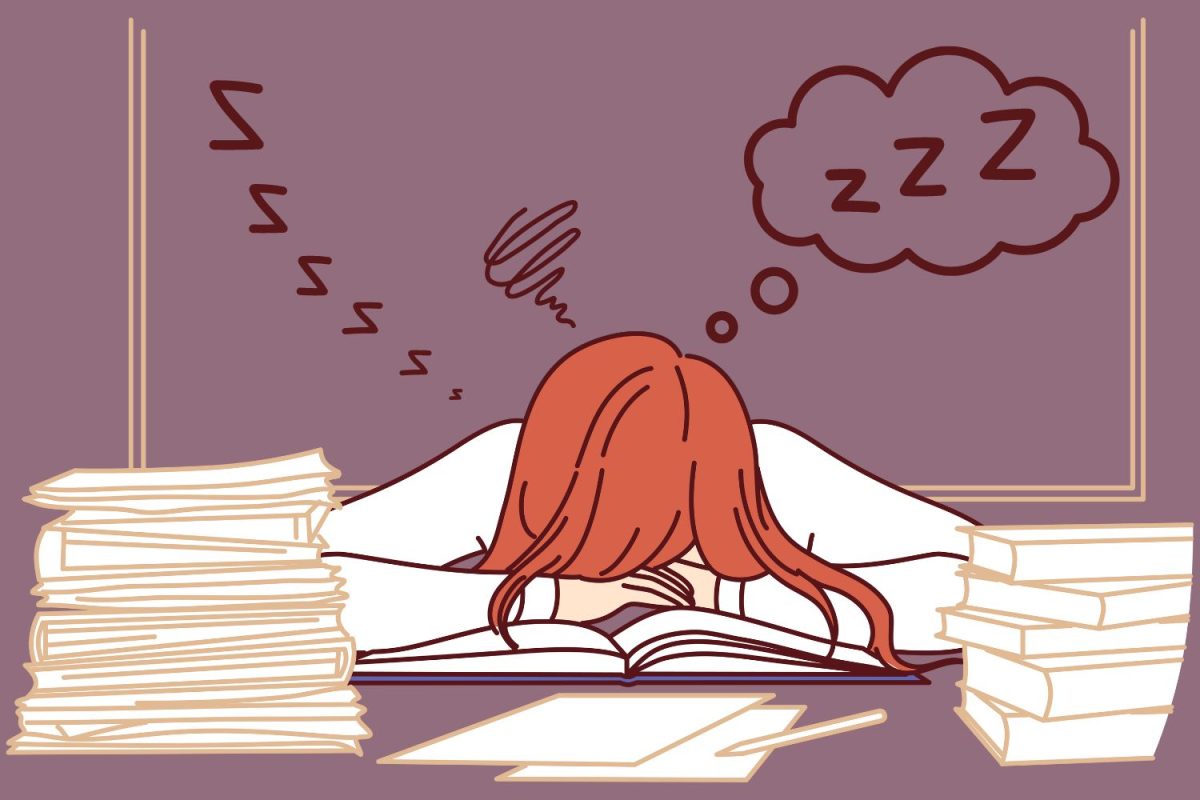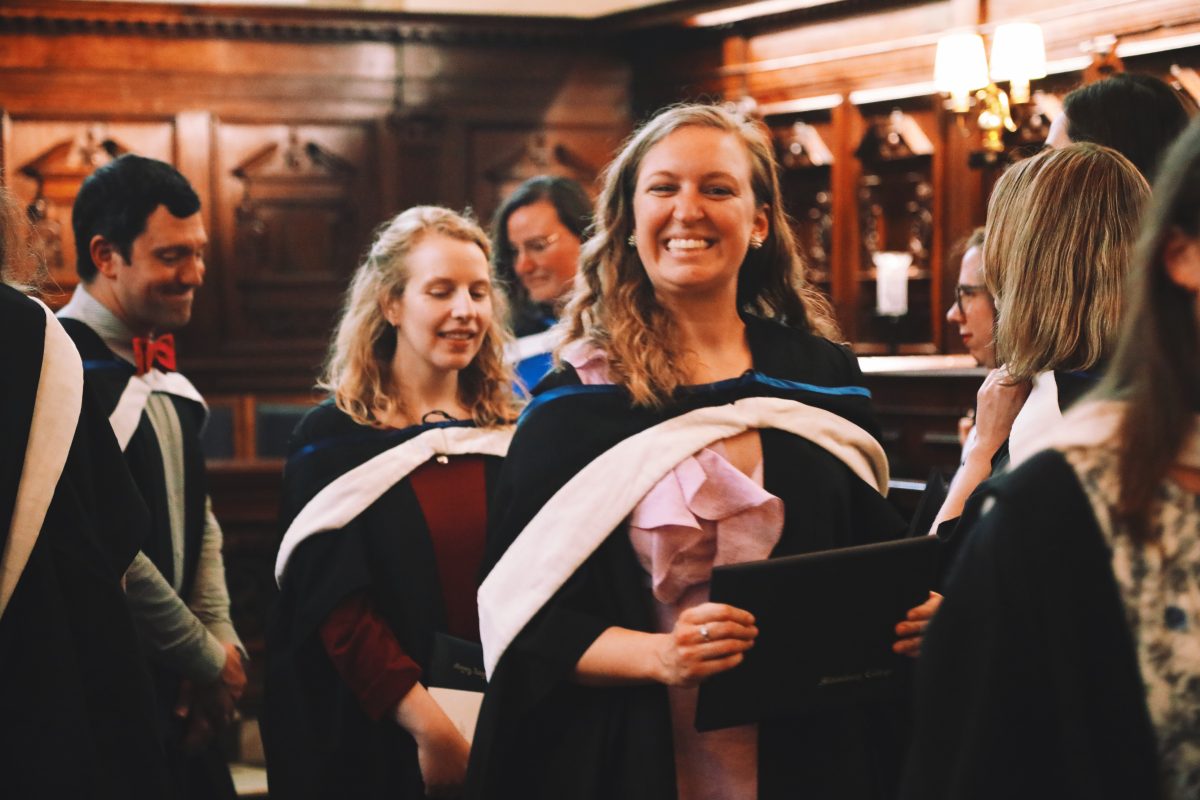Jules Barlow (’15) will never meet her biological parents. After being abandoned on the steps of a police station in Southern China, Barlow wound up in a Chinese orphanage before being adopted when she was 11 months old.
While they may not have conceived her, nor do they share many physical traits, for Barlow, the San Franciscan couple that adopted her are her parents – just like anyone else with biological parents. “People always ask me, ‘do you wish you could meet your real parents?’ But I don’t know, I think it would probably be pretty depressing… They’re really not my parents,” Barlow said.
Home life for Nicki Kidd (’17) has been anything but easy. Though not contentious, her relationship with her family isn’t exactly harmonious. “There’s sometimes when I’m having a fight with a good friend and I just want to go to somebody, you know? Or when I have questions about life and how it works. I could totally ask my parents, without a doubt I could, but I know it would be so much easier if I could ask somebody who is blood-related,” she said. “I’m not going to lie, there are times when you feel completely isolated. You could go out into the world and even when you take the tube, it’s like I’m not blood related to any of you. But imagine that same feeling walking into your house.”
For Abbie Dillon (’16), who was adopted from Tomsk, Russia, this has never been an issue. Her parents “didn’t raise me thinking ‘oh this isn’t my daughter,’” Dillon said. And, as long as she can remember they have always been open about both her and her sister’s adoptions, often remarking: “We are not blood related, but we are as close as it can get.”
While she also celebrates her birthday, December 10 is celebrated in the Dillon household as a day “of gratitude.” Family day, as she calls it, commemorates the day that the family brought Dillon home. “In a way it’s almost more important than a birthday,” Dillon said. “It makes me think how grateful I am, and [it commemorates] a turning point in my life for the better.”
While Barlow’s adopted-sister Emily Barlow (’18) has noticed that certain stigmas exist regarding adopted children and their parents, she too described her relationship with her parents as positive. Frequently her parents will even crack jokes about it, Emily said. “Sometimes you’re lucky that you don’t look like us,” her parents will say. “If you’re embarrassed about us you can say ‘I don’t know them.’”
Kidd admits the independence she feels isn’t all bad. “I think it’s just something you have to get used to. And it’s the built-in independence that adoptive children or foster children have that’s so cool.”
Home life doesn’t only involve parents, though. Kidd’s relationship with her sister has evolved over the years – from one of separation to one of togetherness. “It would be like sharing a dorm room with somebody. Like that sort of separation; you wouldn’t really talk to the other person, it was very sort of friendzoned, if you will. But over time we’ve become sort of like best friends,” Kidd said.
That positive relationship, though, does not necessarily carry over to Kidd and her sister feeling sister-like. “I don’t think we’ll ever be sisters. Because we’re two polar opposites of each other. But there’s that best friend relationship, rather than sister relationship,” Kidd said.
Like Kidd, Madison Wells (’16) experiences a unique relationship with her brother who is also adopted. “We never fight,” she said. “Maybe because we don’t have the same blood [it means] we don’t hate each other.”
In retrospective
The hardest part for Zara Mandel (’16) is not knowing about her biological parents. It’s not like she regrets being adopted – Mandel admits that she does have a good life – but, “I wish I could ask some questions, or even just look at them,” she said. “I don’t even know my mom’s last name.”
Mandel was adopted from Kazakhstan by her American parents when she was about two months-old. A closed adoption – where it is made impossible for the adopted child to ever meet his or her biological parents – means Mandel will never meet her parents. The memories of her biological parents amount to just one picture of her mother.
Like Mandel, Kidd has a similar curiosity about who her mother is – but also an insatiable love for her. “I have so much love for her. Because I know that she was trying to do what was best for me, even though she didn’t know me, and that if I were ever to come into contact with her that it would be the same feelings.”
Under the agreement that Kidd’s family has with LDS Family Services – a part of the Church of Jesus Christ of Latter-day Saints and the group that arranged her adoption – Kidd will be able to meet her mother if they both request a meeting with each other. Kidd will be eligible for this when she turns 18 years old and does plan to exercise her half of the agreement.
When Guidance Counselor Stephanie Oliver, who was also adopted, was younger, curiosity about her biological lineage was not at the forefront of her mind. While she used to believe that “it didn’t matter”, this mindset has changed as she has grown up.
A few years ago Oliver found out that her biological father was Portuguese. “I know nothing about Portugal, I’ve never been,” she said. “But to think I know something about myself that I didn’t know before is really powerful.”
Contrary to the stigmas surrounding adoption such as unstable parental relationships and its reputation as a delicate conversational topic, many people who have been adopted are open about their past, eager to confront their differences rather than hide them.
Confronting their differences
In her early childhood years, Mandel was often met with, “I feel so sorry for you, it must be so awful” when the fact that she was adopted was discovered by her peers. While for her it wasn’t a big deal, the response did have an effect. “Should you feel sorry for me?” she found herself thinking. “Is there something wrong with me?”
In Kidd’s case, it’s the smaller things that can make her feel different. Kidd’s biological parents had her when they were seniors in high school, the result of an unplanned pregnancy. “Sensitivity comes up when people talk about abortion. Because it could have very well been easier to abort an adopted child. Especially in my situation where I wasn’t planned,” she said.
A few years ago, Mandel struggled with depression, and in particular an abandonment problem. “When my friends would leave or change schools I would take it a lot harder than I should,” Mandel said. “I wonder if it relates back to the fact that I was ‘abandoned’ at birth.”
Mandel has also felt momentary separation between her and her friends. “A lot of times my friends will say, ‘oh, I go this [trait] from my parents’ or ‘my dad passed this on to me,’” she said. “I have no idea what that is like; I have never been able to experience that.”
There are things that Mandel, Wells and others may never experience due to the fact that they was adopted, but instead of harbouring any hard feelings towards their biological parents, many consider themselves lucky. “I kind of feel like I owe her [biological mother],” Wells said, grateful for the sacrifice that her mother made in order for her to live a better life.
The fact that she is adopted is not something that Wells hides. In a way, she takes a certain pride in it. And, while there are adopted children who do struggle to define their identity, she feels that living with this mindset has helped her: “Even though you were probably an accident you’re still meant to have the life that you have,” she said. “You’re no less entitled to being around than anyone else.”







